Afe Babalola University, Ado-Ekiti (ABUAD), a Federal Government-licensed, Non-Profit Private University is a model which is unique in many ways.It is located on 130 hectares of land at an altitude of over 1500 feet above sea level which ipso facto provides cool and ideal climate of learning and sports activities.It is the only university in Nigeria, which prior to the issuance of provisional license by the Federal Government of Nigeria, moved to its permanent site and constructed magnificent College buildings and College Hostels, Staff Quarters and equipped with modern teaching facilities including E-learning platform and electronic boards within eight months.
Consequently, National Universities Commission (NUC) was so impressed that it described the university as a “miracle, model reference point and benchmark” for other universities.
It is the only university founded by an acclaimed educationist, the twice winner of the best Pro-Chancellor of all universities in Nigeria; A former Pro-Chancellor of the University of Lagos; Chairman of Committee of Pro-Chancellors of Nigeria Universities and member of the Club of Rectors of Europe.
| Acronym | ABUAD |
| Nickname | ABUAD |
| Motto / Slogan | Industry, Service, and Integrity |
| Colour | Red, Gold, Blue, Green, White |
| Founded | 2009 |
| Departments | 53 |
| Location | Ado Ekiti, Ekiti, Nigeria |
| Address | Olusegun Obasanjo Way, Ado Ekiti 360102, Ekiti, Nigeria |
Afe Babalola University is a result-oriented institution for producing highly skilled and socially relevant graduates capable of applying scientific knowledge for the resolution of social and technological problems. The University is equally committed to transforming students into expert thinkers, innovative managers and resourceful technocrats in all fields of learning.
The vision of the University is to lead education reform in Nigeria by providing a world class educational centre of excellence in academics, character, sports and vocational development.
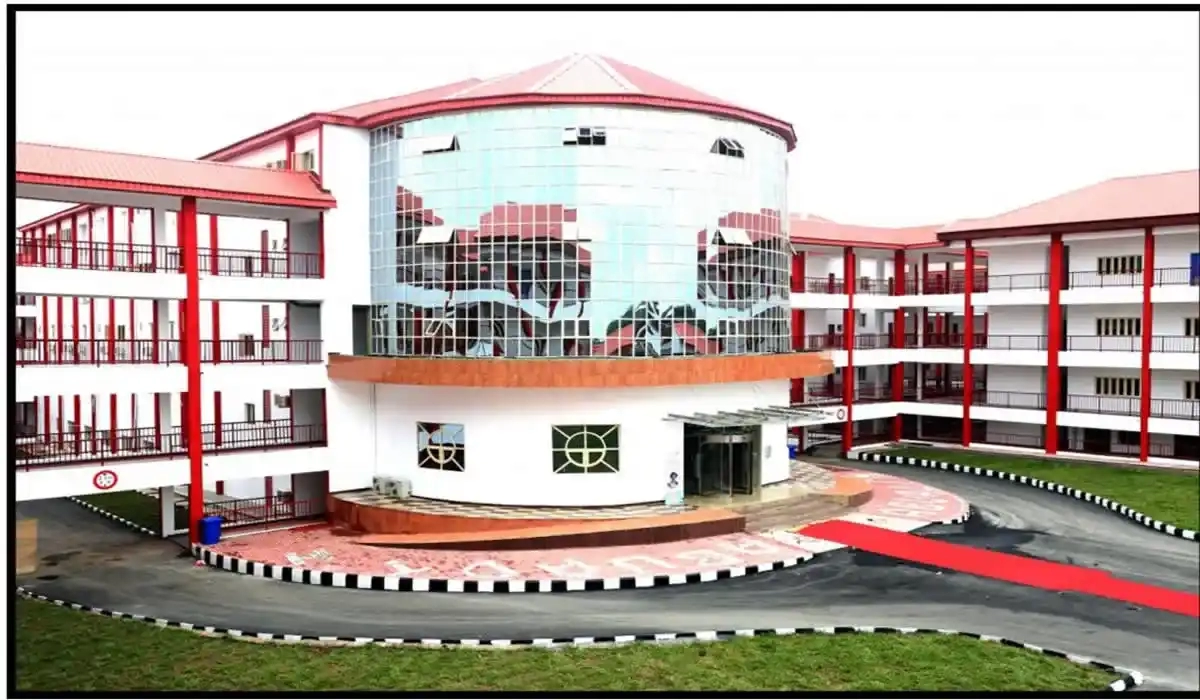
Afe Babalola University's objectives include achieving world-class educational excellence, developing students into expert thinkers and problem-solvers, and fostering societal impact through research, innovation, and community engagement.
The decision of the founder to establish the University was the product of his personal experiences of the founder garnered in the acquisition of his own academic qualificatioe; the decay in the nation’s educational system; and decision of the founder, in realization of the fact that no government can single-handedly fund education, to answer the call by the Federal Government of Nigeria for private participation in the educational sector.
The university has sporting facilities which include badminton court, volley ball court, basket ball court and tennis hitting wall and football pitches; magnificent college and hostel buildings, modern cafeteria, large auditorium, 78 huge Lecture halls, 43 Lecturer offices, huge lecture theatres, E-library, ICT facilities, modern laboratory equipment, LexisNexis academic library, interactive electronic boards, Physical Library, Solar Light etc.
ABUAD provides highly qualified teachers, employs case study method of teaching and each staff dresses corporately. Students and teachers report in the University promptly at 8:00am and close at 5:00pm. Teachers give students assignments daily and encourage students to read and research. Students and teachers sign attendance registers. Lateness and absence are sanctioned. Use of laptops and telephones in classes is forbidden.
ABUAD ensures strict compliance with the code of conduct. Students evaluate teachers, and teachers also evaluate students. ABUAD conducts periodic staff training programmes, sponsor staff to national and international conferences and encourages them to engage in Research and Development and to publish in reputable international journals.
Acceptance Fee - N100000
LL.B: a UTME applicant must have at least 5 credit passes at one sitting in his or her O’ Level examination which must include credit passes in English Language, Literature in English and Mathematics. The applicant must have also sat for and passed the UTME examination for the current year.
A Direct Entry applicant must have a good credit pass in his or her A’ Level examination from a reputable institution in addition to the O’ Level subjects enumerated above.
B.Sc Criminology and B.Sc Police Science:a UTME applicant must have at least 5 credit passes at one sitting or 6 credit passes at two sittings in his or her O’ Level examination which must include credit passes in English Language and Mathematics. The applicant must have also sat for and passed the UTME examination for the current year.
A Direct Entry applicant must have a good credit pass in his or her A’ Level examination from a reputable institution in addition to the O’ Level subjects enumerated above.
Diploma and Certificate programmes: an applicant must have at least 4 credit passes at one sitting or 5 credit passes at two sittings in his or her O’ Level examination which must include credit passes in English Language and Mathematics.
Foreign Students
Foreign applicants seeking admission into any of the degree programmes enumerated above must have met the requirements for admission in their home countries. Where the applicant’s indigenous language or language of study is not English he or she will be required in addition to show a certificate of proficiency in English.
These payments are made online via the ABUAD admissions portal—no physical bank visits.
Email: [email protected]
Phone : +234-812-777-2121
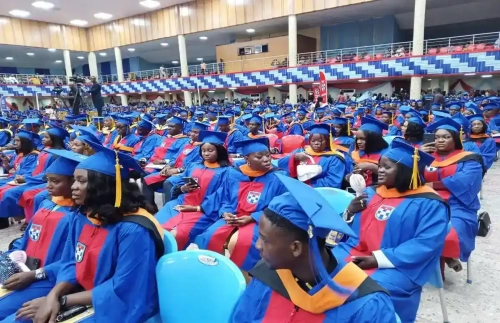
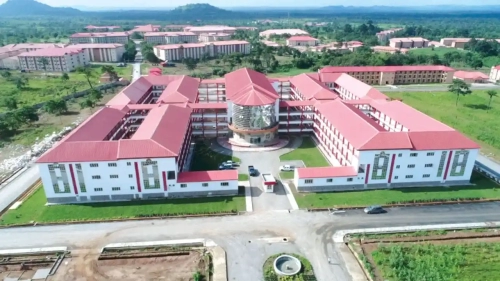
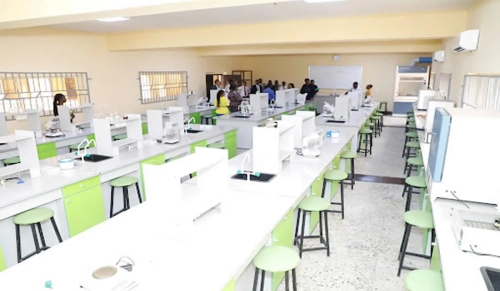
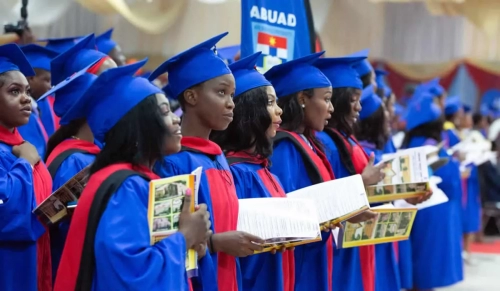
National Universities Commission (NUC)
A prolific and highly regarded scholar, Professor Olawuyi has practiced and taught law in Europe, North America, Asia, Africa and the Middle East. He has served as a visiting professor at Columbia Law School, New York, China University of Political Science and Law and senior visiting research fellow at the Oxford Institute for Energy Studies. In 2019, he was a Herbert Smith Freehills visiting professor at Cambridge University. He was formerly an international energy lawyer at Norton Rose Fulbright Canada LLP where he served on the firm’s global committee on energy investments in Africa. He has delivered lectures on energy law in over 40 countries. He was also formerly deputy director and head of international environmental law at the Centre for International Governance Innovation, Waterloo, Canada.
Professor Olawuyi has published over 100 influential peer-reviewed articles, books, and reports on energy finance, sustainable development law and extractive resource governance. His most recent book publications are: Extractives Industry Law in Africa (Springer 2018) and The Human Rights Based Approach to Carbon Finance (Cambridge University Press, 2016), which has been described by The Rt. Hon the Lord JonathanHugh Mance of the Supreme Court of the United Kingdom as one of the most importantcontributions to international law.
His teaching and research experience cuts across the fields of Sociology, Nursing, Law and Public Health. He has supervised students both at Undergraduate and Postgraduate levels in Research Projects, Dissertations and Theses.
A man with a voracious appetite for hard work, Ijabadeniyi has authored three textbooks in addition to publishing several Articles in national and international Journals and several chapters to books as part of his contributions to knowledge base.
He is a recipient of various Awards, Honor’s and Commendations among which are: The Most Devoted ABUAD Staff of the year Award (2022 and 2023 respectively), Florence Nightingale Academic Achievements Award (2018), Nursing & Midwifery Council of Nigeria Golden Jubilee Award (1996), Best Student in Academic (UTC Award) Department of Nursing, University of Ibadan (1990),
A grass root man, Ijabadeniyi holds the chieftaincy title of Aare of Idashen land in Owo, Ondo State. He is also a member of Board of Trustees, Adekunle Ajasin University, Akungba Akoko (AAUA) Alumni Association.
He has presented several Academic papers in notable Conferences, Seminars and Workshops. A polymath of some sort, the new Deputy Vice Chancellor (Administration) is a well-experienced teacher with diverse knowledge, a Senior Research Fellow, a Medical Sociologist, a Legal Practitioner, a Nurse and a Public Health Specialist.
Lady Christie Oluborode had attended conferences/workshops/seminars organized by reputable institutions such as Committee of Registrars of Nigerian Universities (CORNU), National Universities Commission and the Institute of Strategic Management of Nigeria among others.She is a member of such Professional Associations as the Institute of Strategic Management Nigerian (ISMN) and Nigerian Institute of Management (NIM).
Aare Afe Babalola is a stickler for standard and discipline. He is a self-made man who believes strongly that nothing is impossible. Indeed, his aut... read more The University is set up as a practical example of how problems militating against the growth of Nigerian Universities can be solved.